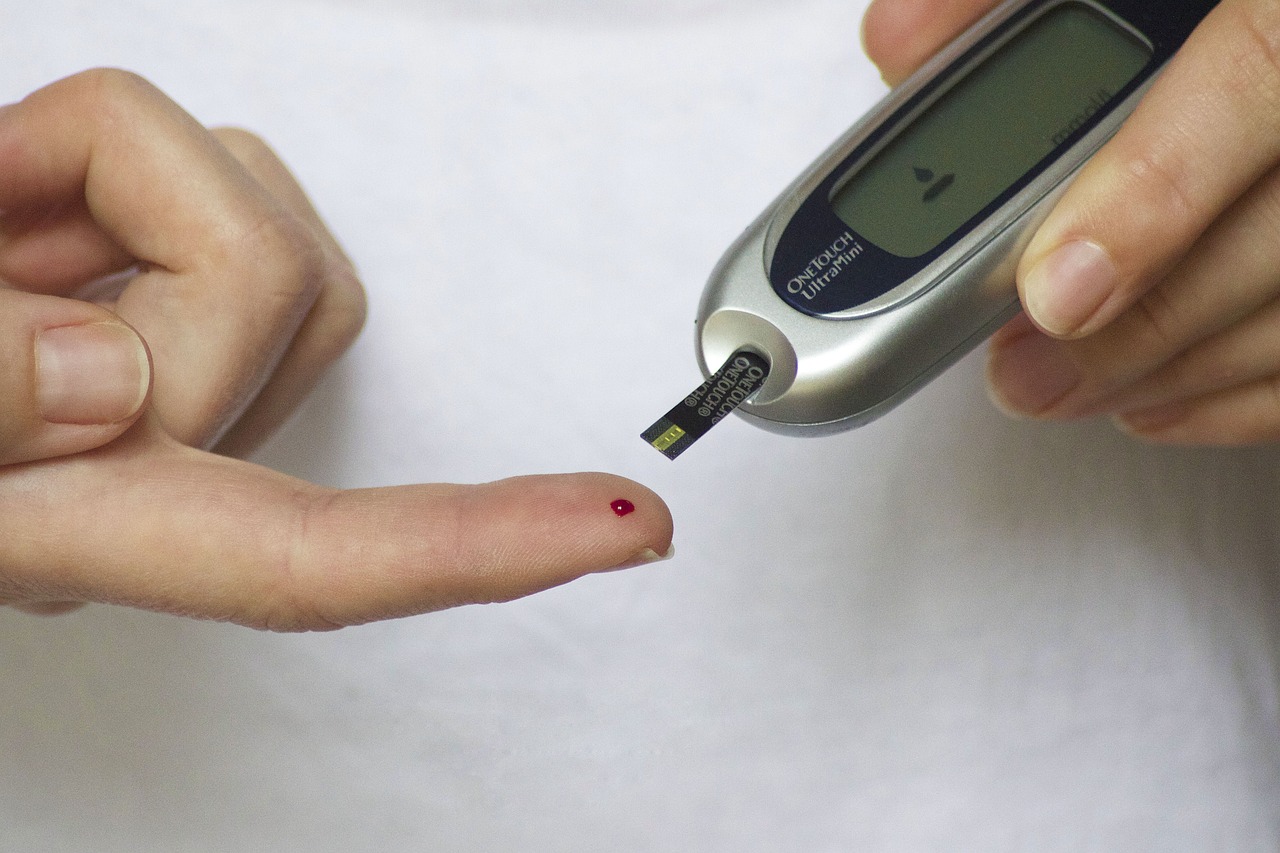Natural Remedies for Diabetes: Understanding, Efficacy, Safety
https://icdrc.org/wp-content/themes/osmosis/images/empty/thumbnail.jpg 150 150 admin admin https://secure.gravatar.com/avatar/693ccb227eb6527287caaa4e9eb13c6e?s=96&d=mm&r=g
Introduction:
Diabetes, a chronic metabolic disorder marked by elevated blood sugar levels, impacts millions globally. Alongside conventional medical treatments, numerous individuals seek natural remedies as supplementary methods to manage their condition. Within this extensive piece, we explore diverse natural remedies for diabetes, analyzing their potential advantages, scientific backing, and safety factors.
Understanding Diabetes:
diabetes comprises various types, including Type 1, Type 2, and gestational diabetes. Type 1 diabetes stems from the autoimmune destruction of pancreatic beta cells, resulting in insufficient insulin production. Type 2 diabetes involves insulin resistance and reduced insulin production. Factors like obesity, genetics, and lifestyle choices are commonly associated with it. Gestational diabetes arises during pregnancy due to hormonal shifts and insulin resistance.
Natural Remedies for Diabetes:
1. Dietary Interventions:
a. Low Glycemic Index (GI) Foods:
Opting for foods with a low glycemic index (GI) can aid in better blood sugar management. These foods typically include whole grains, legumes, non-starchy vegetables, and select fruits. Their low GI means they cause gradual and steady increases in blood sugar levels, promoting stable energy levels and improved diabetes management.
b. Fiber-Rich Foods:
Dietary fiber plays a vital role in slowing down glucose absorption, which helps control blood sugar levels effectively. Good sources of dietary fiber include oats, barley, legumes, and various vegetables. Including these foods in the diet can contribute to better blood sugar management and overall health for individuals with diabetes.
c. Healthy Fats:
Monounsaturated and polyunsaturated fats, found in olive oil, avocados, nuts, and fatty fish, enhance insulin sensitivity and promote cardiovascular health. Including these healthy fats in the diet benefits individuals with diabetes. It improves overall health and reduces the risk of cardiovascular complications.
2. Herbal Remedies:
a. Cinnamon:
Cinnamon has been researched for its potential to boost insulin sensitivity and lower blood sugar levels. However, the findings are inconclusive. Some studies indicate positive effects, but results vary. Further research is necessary to confirm its effectiveness in diabetes management.
b. Fenugreek:
Fenugreek seeds are rich in soluble fiber and compounds associated with lowering blood sugar levels and improving insulin sensitivity. Incorporating fenugreek seeds into the diet may offer benefits for individuals managing diabetes, though further research is needed to fully understand their effectiveness.
c. Bitter:
Bitter melon contains compounds that possess insulin-like effects, which may assist in regulating blood sugar levels. Incorporating bitter melon into the diet may offer potential benefits for individuals managing diabetes by aiding in blood sugar regulation. However, more research is needed to fully understand its effectiveness and optimal usage.
3. Physical Activity:
Regular exercise plays a crucial role in improving insulin sensitivity and lowering blood sugar levels, thereby reducing the risk of developing diabetes. Both aerobic exercises, such as walking, swimming, or cycling, and resistance exercises, like weightlifting or bodyweight exercises, offer significant benefits for glycemic control and overall health. By incorporating a variety of exercises into one’s routine, individuals can effectively manage blood sugar levels and decrease their risk of developing diabetes-related complications, leading to better long-term health outcomes.
4. Stress Management:
Chronic stress can exacerbate symptoms of diabetes and contribute to insulin resistance, potentially leading to difficulties in managing the condition. Implementing relaxation techniques such as meditation, deep breathing exercises, and yoga can be beneficial in reducing stress levels. By incorporating these practices into one’s daily routine, individuals with diabetes can mitigate the impact of stress on their health, promoting better management of their condition and overall well-being.
5. Adequate Sleep:
Insufficient sleep disrupts hormonal regulation. It increases cortisol levels and decreases insulin sensitivity, contributing to diabetes development. Prioritizing adequate sleep duration and quality supports metabolic processes and reduces insulin resistance risk. Establishing a regular sleep routine and creating a comfortable sleep environment can improve sleep quality. Relaxation techniques before bedtime also contribute to better sleep quality and duration. These practices support optimal metabolic health and reduce diabetes risk.
Efficacy and Evidence:
While natural remedies offer potential for managing diabetes, the scientific evidence supporting their effectiveness varies. Certain interventions, such as dietary modifications and consistent exercise, are backed by robust evidence demonstrating their efficacy in enhancing glycemic control and lowering the risk of diabetes. However, other approaches, like herbal remedies, yield more mixed results and are supported by limited high-quality research.
For example, cinnamon supplementation has displayed promising benefits in certain studies, yet overall evidence remains inconclusive. Similarly, fenugreek and bitter melon have exhibited glucose-lowering effects in controlled research environments, but the necessity for more extensive clinical trials to establish their efficacy and safety is apparent. As such, while natural remedies may hold potential, further research is imperative to elucidate their true benefits and ascertain their role in diabetes management.
Safety Considerations:
Before incorporating natural remedies into diabetes management, individuals should consider several safety factors:
1. Consultation with Healthcare Provider:
It is important to always consult with a healthcare professional before initiating any new treatment or supplement regimen, particularly if one is already taking medications or insulin for diabetes. Healthcare professionals possess the expertise to provide personalized guidance tailored to an individual’s specific health needs and circumstances. Consulting with a healthcare provider ensures that any new treatment or supplement regimen is appropriate, safe, and compatible with existing medications or insulin therapy. Additionally, healthcare professionals can offer valuable insights into potential interactions, side effects, and overall suitability of the proposed regimen, thereby optimizing the individual’s diabetes management and minimizing risks. Therefore, seeking guidance from a healthcare professional is essential for making informed decisions and promoting overall health and well-being in individuals with diabetes.
2. Potential Interactions:
Herbal remedies and supplements have the potential to interact with medications, which can impact their effectiveness or safety. These interactions may change how the body metabolizes medications, resulting in either increased or decreased levels of the drug in the bloodstream. Consequently, the medication’s effectiveness could be compromised, or there may be a higher risk of experiencing side effects.
Healthcare providers are well-equipped to offer guidance on potential interactions and contraindications between herbal remedies, supplements, and medications. They can assess an individual’s medical history, current medications, and health status to determine the appropriateness of incorporating herbal remedies or supplements into their treatment plan. Healthcare professionals can also provide recommendations on dosage, timing of administration, and monitoring for any adverse effects that may arise from interactions.
By consulting with a healthcare provider before using herbal remedies or supplements, individuals can ensure that their treatment regimen is safe and optimized for their specific health needs. This proactive approach helps to minimize the risk of adverse interactions and supports overall health and well-being.
3. Quality and Dosage:
It’s crucial to ensure the quality and purity of herbal supplements, as variability in formulations can significantly impact their efficacy and safety. Choosing reputable brands or manufacturers that adhere to stringent quality control standards can help ensure the reliability of the product.
Following recommended dosage guidelines provided by healthcare professionals or reputable sources is essential for optimizing the benefits of herbal supplements while minimizing the risk of adverse effects. Dosages that are too low may be ineffective, while excessive dosages can increase the likelihood of adverse reactions or interactions with other medications.
By adhering to recommended dosage guidelines and selecting high-quality herbal supplements, individuals can maximize the potential benefits of these remedies while minimizing risks to their health. Consulting with a healthcare professional before starting any new supplement regimen is also advisable to ensure compatibility with existing treatments and health conditions.
4. Monitoring and Evaluation:
Regular monitoring of blood sugar levels and overall health is essential when integrating natural remedies into diabetes management. This practice enables individuals to track their response to these remedies and assess their impact on blood sugar control and overall well-being. By closely monitoring blood sugar levels, individuals can identify any fluctuations or trends that may require adjustments to their treatment plan.
Additionally, monitoring overall health allows individuals to evaluate the effectiveness and safety of the natural remedies they are using. This includes monitoring for any potential side effects or adverse reactions that may occur. By staying vigilant and observant of their health status, individuals can make informed decisions about the continuation or modification of their natural remedy regimen.
Overall, regular monitoring provides valuable feedback that guides adjustments to treatment plans based on individual responses and outcomes. This proactive approach helps to ensure that natural remedies are effectively supporting diabetes management while minimizing risks to health.
Conclusion:
Natural remedies provide a complementary approach to managing diabetes, yet their effectiveness and safety necessitate thorough evaluation. While dietary modifications, regular physical activity, stress reduction, and sufficient sleep have established benefits for controlling blood sugar levels and promoting overall well-being, herbal remedies require additional research to fully understand their effects.
Individuals living with diabetes should prioritize evidence-based strategies and seek guidance from healthcare professionals before integrating natural remedies into their treatment regimen. By combining conventional and natural approaches, individuals can enhance their diabetes management and enhance their quality of life while mitigating potential risks and adverse outcomes.
WHO about Diabetes (https://www.who.int/news-room/fact-sheets/detail/diabetes#:~:text=Overview,hormone%20that%20regulates%20blood%20glucose.)
